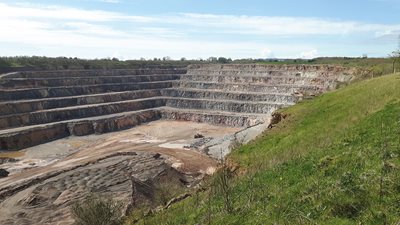 The Mineral Products Association (MPA) has published a new report setting out 18 regulatory reforms that the Government should enact to reduce uncertainty, delays and costs in the mineral products sector.
The Mineral Products Association (MPA) has published a new report setting out 18 regulatory reforms that the Government should enact to reduce uncertainty, delays and costs in the mineral products sector.
Smart Regulation in the Mineral Products Sector makes a series of clear recommendations for reform of planning and permitting rules, making regulators more accountable for their performance and commitment to economic growth, and reducing regulatory barriers to innovation.
The report sets out how these achievable reforms to domestic regulation would facilitate more investment in the sector, help secure a long-term domestic supply of essential mineral products, and support the Government’s ambitions for housebuilding, infrastructure, net zero and economic growth.
Manufacturers of products such as aggregates, concrete, asphalt and industrial minerals together represent the biggest flow of materials in the UK economy, producing 400 million tonnes of essential products every year, mainly for building and major infrastructure projects, including new nuclear and offshore wind energy.
MPA research has previously highlighted that while demand for aggregates is projected to increase over the next decade, permitted reserves are declining, despite those materials being abundant in the UK. The recommendations in the report are intended to help reverse that decline and ensure the sector can continue to meet future needs.
The report sets out a more productive path for regulatory reform than the Government’s apparent focus on re-examining all EU-derived regulation via the Retained EU Law Bill.
Jon Prichard, Chief Executive of the MPA, commented:
“From health and safety to environmental protection, our industry achieves the highest standards and has no desire to change regulations that work. What we want is for regulators to be more efficient, practical and reasonable in their application of the rules, and for businesses to be able to have confidence that they will get consistent regulatory decisions in good time at reasonable cost. The recommendations in our new report will help to deliver that.
“The Government’s ambitions for housebuilding, infrastructure and green energy production all rely on a thriving mineral products sector that absolutely provides the materials that those projects need. By following the recommendations in our report, Ministers can go a long way to securing the future supply of those materials, and take a step closer to realising our shared ambitions.”
Robert McIlveen, Director of Public Affairs, said:
“Our members have long called for regulatory reform based on their experience of poor performance by regulators, and the Government should focus on tackling the real-world uncertainty, delays, and costs that deter investment and hold back economic growth. The Retained EU Law Bill is going after the wrong target and Government must not let it get in the way of meaningful reform to improve the way regulation is implemented in practice.”
Ends.
About the Mineral Products Association:
The Mineral Products Association (MPA) is the trade association for the aggregates, asphalt, cement, concrete, dimension stone, lime, mortar and silica sand industries. With the merger of British Precast, and affiliation of the British Association of Reinforcement (BAR), the British Calcium Carbonate Federation, the Cement Admixtures Assocation (CAA), CONSTRUCT, Eurobitume, MPA Northern Ireland, MPA Scotland and the UK Quality Ash Association (UKQAA), it has a growing membership of 520 companies and is the sectoral voice for mineral products. MPA membership is made up of the vast majority of independent SME quarrying companies throughout the UK, as well as the 9 major international and global companies. It covers 100% of UK cement and lime production, 90% of GB aggregates production, 95% of asphalt and over 70% of ready-mixed concrete and precast concrete production. In 2018, the industry supplied £16 billion worth of materials and services to the Economy. It is also the largest supplier to the construction industry, which had annual output valued at £172 billion in 2018. Industry production represents the largest materials flow in the UK economy and is also one of the largest manufacturing sectors.
For media enquiries, contact Elizabeth Clements at: Elizabeth.Clements@mineralproducts.org.